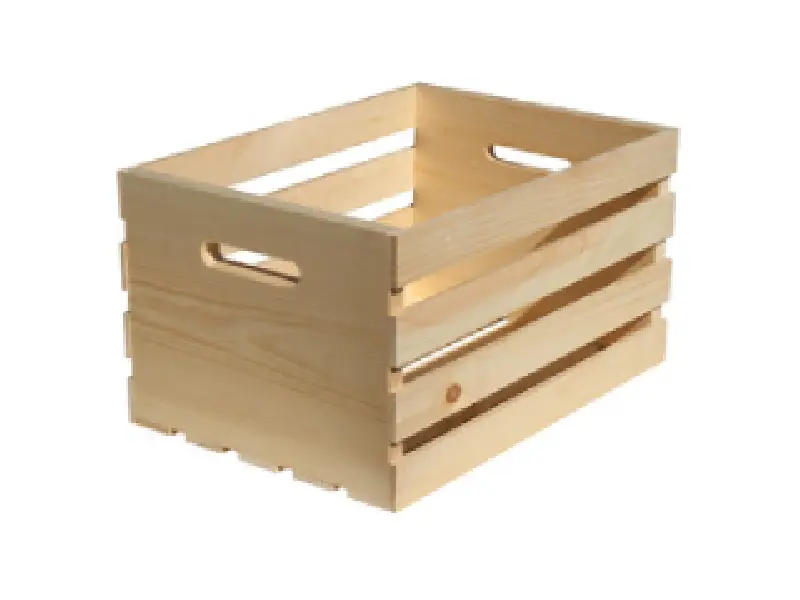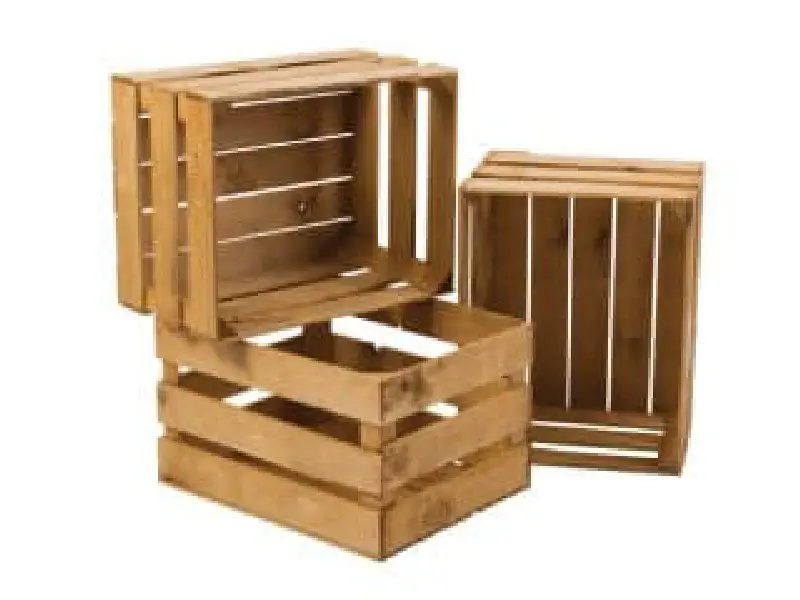The Future Of Packaging: Trends From Wooden Crate Manufacturers

Packaging plays a pivotal role in the modern economy, not only safeguarding products during transit but also influencing consumer perception and environmental impact. Amidst the evolving landscape of packaging solutions, wooden crates stand out for their durability, eco-friendliness, and timeless appeal. As manufacturers of wooden crates navigate the demands of sustainability, efficiency, and innovation, their contributions to shaping the future of packaging are becoming increasingly significant. This article explores the key trends, insights, advancements, and impacts driven by wooden crate manufacturers in the realm of packaging.
Leading Trends In Packaging By Wooden Crate Manufacturers
Wooden crate manufacturers are at the forefront of several prominent trends reshaping the packaging industry. Sustainability emerges as a cornerstone, with an emphasis on utilizing renewable materials and minimizing environmental footprint. The shift towards reusable and recyclable packaging solutions reflects a broader commitment to eco-conscious practices. Additionally, customization plays a crucial role as manufacturers cater to diverse client needs, offering bespoke designs that enhance both functionality and brand identity. Digitalization and automation are revolutionizing production processes, optimizing efficiency without compromising on quality. Furthermore, innovations in material science enable wooden crate manufacturers to enhance product protection while reducing overall weight and volume, contributing to cost-effective and sustainable logistics solutions.

How Wooden Crate Manufacturers Shape Tomorrow’s Packaging?
Wooden crate manufacturers wield significant influence in shaping the future of packaging through their commitment to sustainability, innovation, and customer-centric solutions. By championing eco-friendly materials and manufacturing practices, they set benchmarks for reducing carbon footprints and promoting circular economies. The integration of smart technologies such as IoT-enabled tracking systems and RFID tags enhances supply chain transparency and efficiency, paving the way for intelligent packaging solutions. Collaboration across industries fosters creativity and adaptability, driving continuous improvement and responsiveness to evolving market demands. Moreover, the emphasis on durability and product protection underscores the enduring value of wooden crates in safeguarding goods across diverse sectors, from agriculture to high-tech industries.
Insights From Wooden Crate Manufacturers
Wooden crate manufacturers provide valuable insights into the evolving preferences and priorities of businesses seeking sustainable packaging solutions. Their proactive engagement with clients facilitates the co-creation of packaging designs that optimize functionality, minimize waste, and enhance brand differentiation. Market intelligence and consumer feedback inform continuous product innovation, ensuring that wooden crates remain versatile and adaptable to changing market dynamics. By embracing a holistic approach to packaging, manufacturers cultivate long-term partnerships built on trust, reliability, and environmental stewardship. Furthermore, the emphasis on craftsmanship and quality craftsmanship ensures that each wooden crate not only meets but exceeds industry standards, reflecting a commitment to excellence and customer satisfaction.
Key Trends Among Wooden Crate Manufacturers
Several key trends are shaping the strategies of wooden crate manufacturers in response to emerging market demands and technological advancements. Foremost among these trends is the adoption of sustainable forestry practices and certified wood sourcing, promoting responsible stewardship of natural resources. The integration of automation and robotics in production processes enhances operational efficiency while maintaining precision and consistency in crate manufacturing. Collaboration with packaging designers and engineers enables manufacturers to explore innovative designs that optimize space utilization and improve product safety during transit. Moreover, the customization of crates to accommodate specific product dimensions and handling requirements underscores a tailored approach to packaging solutions that prioritize both functionality and cost-effectiveness.
Impact On Packaging Strategies By Wooden Crate Manufacturers
The impact of wooden crate manufacturers on packaging strategies is profound, influencing decisions ranging from material selection to supply chain management. By prioritizing durability and reusability, manufacturers contribute to reducing packaging waste and operational costs associated with single-use alternatives. Sustainable packaging solutions not only align with corporate social responsibility goals but also resonate with environmentally conscious consumers seeking brands that prioritize sustainability. Enhanced logistics efficiency through lightweight yet robust crate designs facilitates faster transit times and reduced fuel consumption, further minimizing environmental impact. Additionally, the versatility of wooden crates in accommodating diverse product types and shapes enhances operational flexibility, supporting agile supply chain strategies in response to fluctuating market demands.
Advancements In Packaging By Wooden Crate Manufacturers
Advancements in packaging by wooden crate manufacturers reflect ongoing innovations in material science, design engineering, and manufacturing processes. The evolution towards lightweight yet durable materials enhances product protection without compromising on sustainability, striking a balance between functionality and environmental responsibility. Advanced coating technologies improve resistance to moisture, pests, and physical impact, extending the lifespan of wooden crates in challenging transport conditions. The integration of IoT and RFID technologies enables real-time tracking and monitoring of shipments, optimizing inventory management and enhancing supply chain visibility. Furthermore, modular crate designs facilitate efficient storage and handling, supporting seamless integration into automated warehousing and distribution systems.
Evolution In Packaging From Wooden Crate Manufacturers
The evolution in packaging from wooden crate manufacturers underscores a shift towards holistic solutions that encompass sustainability, innovation, and adaptability. By embracing circular economy principles, manufacturers explore closed-loop systems where crates are reused, repurposed, or recycled at the end of their lifecycle, minimizing waste and resource consumption. The customization of crates with ergonomic features and specialized fittings enhances ease of handling and product protection, catering to diverse industry requirements from pharmaceuticals to electronics. Continuous investment in research and development drives technological advancements that push the boundaries of what wooden crates can achieve in terms of performance and sustainability. Moreover, collaborative partnerships with stakeholders across the supply chain foster knowledge exchange and innovation diffusion, ensuring that packaging solutions remain responsive to evolving market dynamics and regulatory requirements.
Conclusion
Wooden crate manufacturers are pivotal players in shaping the future of packaging through their commitment to sustainability, innovation, and operational excellence. By embracing eco-friendly materials, advanced technologies, and collaborative partnerships, manufacturers enhance product protection, optimize supply chain efficiency, and reduce environmental impact. The evolution towards smart, customizable, and durable packaging solutions underscores a transformative shift towards more resilient and sustainable packaging practices across industries. As wooden crate manufacturers continue to innovate and adapt to changing market demands, their contributions will remain integral to advancing the frontier of packaging excellence in a rapidly evolving global economy.






